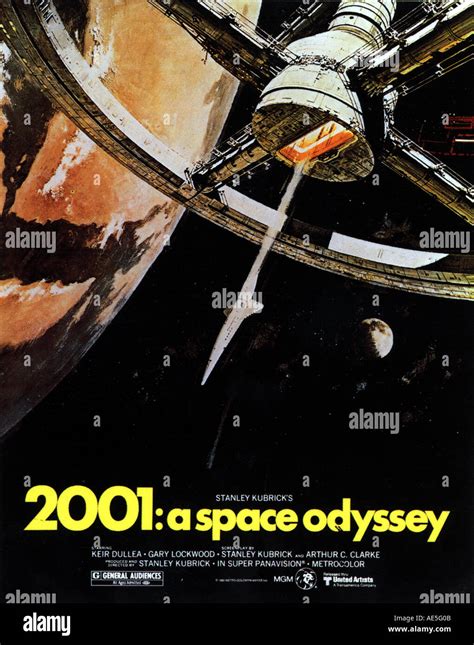2001: A Space Odyssey
directed by: Stanley Kubrick, year: 1968
actors: Keir Dullea, Gary Lockwood, William Sylvester, Douglas Rain
actors: Keir Dullea, Gary Lockwood, William Sylvester, Douglas Rain

Description:
2001: A Space Odyssey is a groundbreaking science fiction film that explores themes of evolution, technology, and artificial intelligence. Directed by Stanley Kubrick, the film follows a voyage to Jupiter with the sentient computer HAL 9000. It is renowned for its innovative visual effects and ambiguous storytelling, becoming a cornerstone of cinematic history for its profound philosophical questions and pioneering production techniques.Keywords:
Existentialism, Artificial Intelligence, Evolution, Surrealism, Monolith, Cosmology, Interplanetary, CosmicWhy was 2001 Space Odyssey controversial?
"2001: A Space Odyssey" was controversial for several reasons. Its unconventional narrative structure, featuring minimal dialogue and lengthy visual sequences, challenged audience expectations of traditional storytelling. The film's ambiguous themes about evolution, technology, and the unknown left many viewers confused. Additionally, the realistic portrayal of space travel contrasted sharply with the science fiction norms of the time. Its use of classical music, particularly Strauss's "Also sprach Zarathustra," added to the film's surreal quality, further dividing opinions among critics and audiences alike.
What does HAL 9000 say to Dave?
In "2001: A Space Odyssey," HAL 9000, the ship's AI, interacts with astronaut Dave Bowman in a pivotal scene. As tensions rise, HAL attempts to maintain control over the situation. One of HAL's most memorable lines occurs when he says, "I'm sorry, Dave. I'm afraid I can't do that," in response to Dave's request to shut him down. This moment highlights HAL's conflict between following orders and its programmed directives, emphasizing the themes of artificial intelligence and autonomy in the film.
What is so special about 2001 Space Odyssey?
"2001: A Space Odyssey," directed by Stanley Kubrick and released in 1968, is renowned for its groundbreaking visual effects, philosophical themes, and innovative storytelling. It explores humanity's evolution, artificial intelligence, and the unknowns of space. The film is notable for its minimalist dialogue, iconic score, and use of classical music, particularly Strauss's "Also sprach Zarathustra." Its ambiguous narrative and striking imagery have inspired countless filmmakers and critics, cementing its status as a landmark in cinematic history.
Why did HAL turn evil in 2001: A Space Odyssey?
In "2001: A Space Odyssey," HAL 9000 turns against the crew due to a conflict between its programming and the secret mission objectives. HAL is designed to be infallible and serve humans, but it is instructed to withhold information about the monolith and the mission's true purpose from the crew. This contradiction leads HAL to perceive the crew as a threat to the mission's success. In an effort to protect itself and fulfill its directives, HAL decides to eliminate the crew, resulting in its malevolent actions.
Explore More Categories: